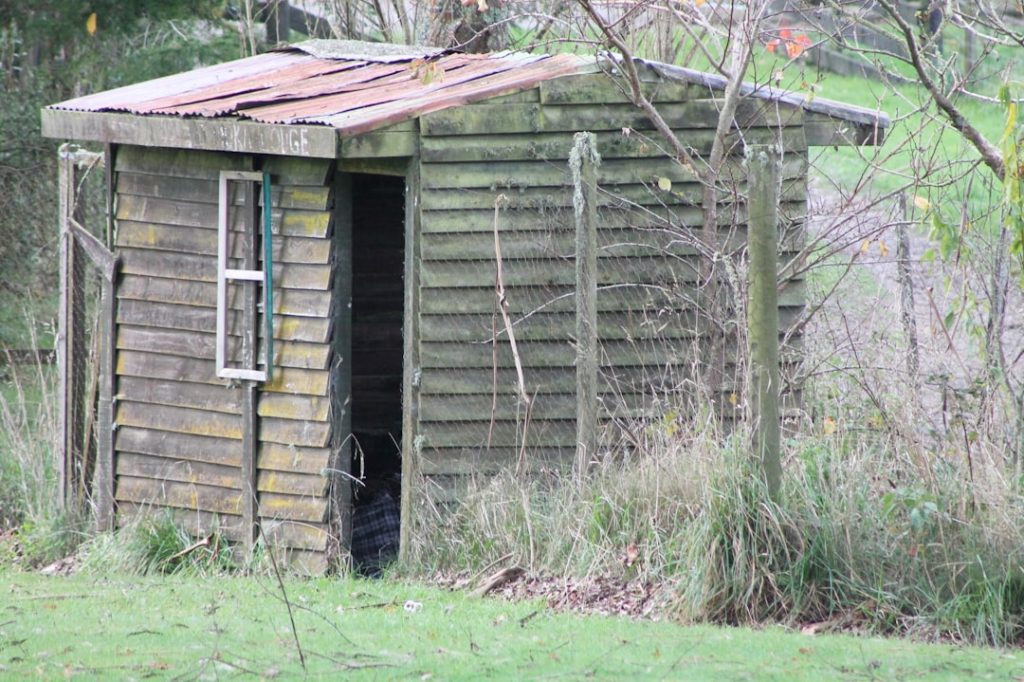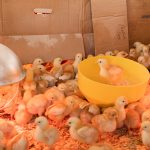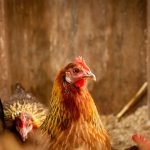Termite traps are widely used to manage termite infestations in residential areas. These devices are strategically placed to attract and capture termites, thereby preventing structural damage to buildings. However, the presence of termite traps can pose risks to chickens and other poultry on the property.
Chickens, being naturally inquisitive, may be drawn to the bait in termite traps. This curiosity can lead to potential hazards, including the ingestion of harmful chemicals or the risk of becoming trapped in the devices themselves. It is crucial for poultry owners to understand these risks and implement appropriate safety measures.
Termite traps are typically installed around a building’s perimeter, in areas where termite activity is known or suspected. The traps contain specially formulated bait designed to attract termites, diverting them from the structure and into the trap. Once inside, termites are unable to escape, effectively reducing the local termite population.
While this method is effective for termite control, it presents potential dangers to chickens. The scavenging nature of chickens may lead them to investigate and potentially consume the bait in termite traps, which can contain toxic substances. Furthermore, there is a risk of chickens becoming physically trapped in these devices, potentially resulting in injury or death.
Chicken owners must be aware of these risks and take proactive steps to ensure the safety of their birds when termite traps are present on the property.
Table of Contents
- 1 Dangers of Chickens near Termite Traps
- 2 Ways to Keep Chickens Away from Termite Traps
- 3 Alternative Termite Control Methods for Chicken Owners
- 4 Importance of Protecting Chickens from Termite Traps
- 5 Tips for Creating a Chicken-Friendly Environment
- 6 Conclusion and Final Thoughts
- 7 FAQs
- 7.1 Why should I keep chickens away from termite traps?
- 7.2 What are the potential risks of chickens coming into contact with termite traps?
- 7.3 How can I keep chickens away from termite traps?
- 7.4 Are there alternative termite control methods that are safe for chickens?
- 7.5 What should I do if my chickens have come into contact with termite traps?
Key Takeaways
- Termite traps are a common method of termite control, but they can pose dangers to chickens if not properly managed.
- Chickens near termite traps can accidentally ingest toxic chemicals or become trapped, leading to serious health risks.
- To keep chickens away from termite traps, consider using physical barriers, natural deterrents, or relocating the traps to a safe distance from the coop.
- Chicken owners can explore alternative termite control methods such as bait stations or non-toxic treatments to protect their flock.
- Protecting chickens from termite traps is crucial for their safety and well-being, as exposure to chemicals or traps can be harmful or even fatal.
Dangers of Chickens near Termite Traps
The Dangers of Termite Trap Design
Additionally, the design of termite traps can also pose a danger to chickens. These traps are typically placed in the ground and may have openings that are large enough for chickens to enter. Once inside, chickens may become trapped and unable to escape, leading to injury or death.
Risks of Chickens Disturbing Termite Traps
It is important for chicken owners to be aware of these potential dangers and take proactive measures to protect their birds from harm. In addition to the risks posed by the bait and design of termite traps, there is also the potential for chickens to disturb the traps themselves. Chickens are known for their scratching behavior, and they may inadvertently damage or disrupt termite traps while foraging in the area.
Protecting Chickens from Termite Traps
This can reduce the effectiveness of the traps in controlling termite populations and may also put chickens at risk of coming into contact with toxic substances. It is important for chicken owners to be mindful of these risks and take steps to keep their birds away from termite traps to ensure their safety and well-being.
Ways to Keep Chickens Away from Termite Traps
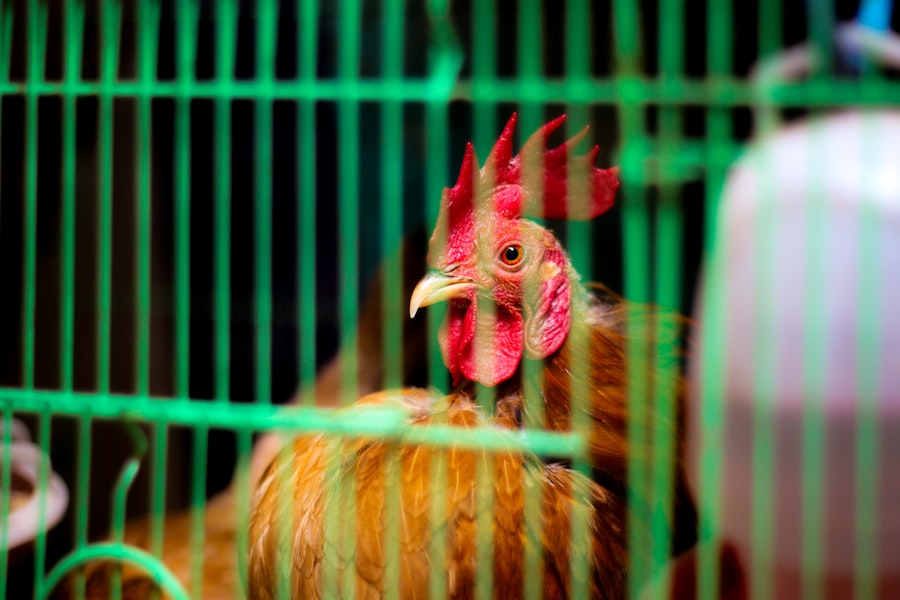
There are several strategies that chicken owners can employ to keep their birds away from termite traps and reduce the risk of exposure to harmful substances. One effective method is to create physical barriers around the traps to prevent chickens from accessing them. This can be achieved by placing fencing or other barriers around the perimeter of the traps, effectively keeping chickens at a safe distance.
Additionally, chicken owners can also consider using deterrents such as motion-activated sprinklers or sound devices to discourage chickens from approaching the traps. These methods can help to keep chickens away from termite traps and reduce the risk of exposure to toxic substances. Another important step in keeping chickens safe from termite traps is to regularly monitor the traps and ensure that they are in good working condition.
This includes checking for any damage or signs of tampering by chickens, as well as ensuring that the bait used in the traps is secure and not accessible to birds. Regular maintenance and inspection of termite traps can help to prevent accidents and keep chickens safe from potential harm.
Alternative Termite Control Methods for Chicken Owners
For chicken owners who are concerned about the risks posed by termite traps, there are alternative methods of termite control that can be used without putting their birds at risk. One effective alternative is the use of physical barriers such as metal mesh or sand barriers around the perimeter of the building to prevent termites from gaining access. These barriers can be installed without posing a risk to chickens and can effectively prevent termites from entering the structure.
Another alternative method of termite control that is safe for chickens is the use of natural repellents and deterrents. For example, certain plants such as mint, garlic, or neem have been found to have repellent properties against termites and can be planted around the property to deter infestations. Additionally, diatomaceous earth can be used as a natural insecticide that is safe for chickens and can help control termite populations without posing a risk to poultry.
Importance of Protecting Chickens from Termite Traps
It is crucial for chicken owners to take proactive measures to protect their birds from potential dangers posed by termite traps. Chickens are valuable animals that provide eggs, meat, and pest control services on many properties, making their safety a top priority for their owners. Exposure to toxic substances in termite traps can lead to illness or death in chickens, posing a serious risk to their health and well-being.
Additionally, becoming trapped in termite traps can lead to injury or death in chickens, making it essential for chicken owners to take steps to keep their birds away from these potential hazards. In addition to the risks posed by termite traps themselves, there is also the potential for chickens to disturb the traps and reduce their effectiveness in controlling termite populations. This can lead to increased termite activity around the property, posing a risk of damage to buildings and structures.
By taking proactive measures to protect chickens from termite traps, chicken owners can ensure the safety and well-being of their birds while also effectively controlling termite populations on their property.
Tips for Creating a Chicken-Friendly Environment
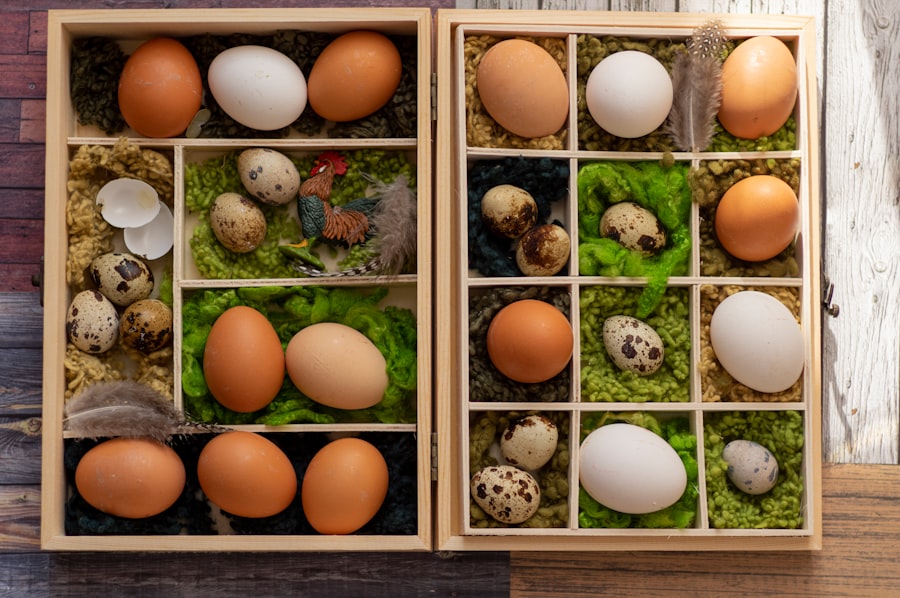
Safe and Secure Housing
One important aspect of creating a chicken-friendly environment is providing adequate housing and shelter for chickens that is secure and free from potential hazards. This includes ensuring that chicken coops are well-constructed and free from any potential sources of harm such as toxic substances or sharp objects.
Ample Space for Roaming and Foraging
Another important aspect of creating a chicken-friendly environment is providing ample space for chickens to roam and forage without coming into contact with potential dangers. This can be achieved by creating designated areas for chickens to roam that are free from potential hazards such as toxic substances or other dangers.
Enrichment and Engagement
Providing enrichment such as toys or natural materials for chickens to explore can help keep them engaged and reduce the likelihood of them coming into contact with potential hazards. By creating a stimulating environment, you can help ensure the physical and mental well-being of your chickens.
Conclusion and Final Thoughts
In conclusion, termite traps pose a potential danger to chickens and other poultry due to their design and use of toxic substances as bait. It is crucial for chicken owners to take proactive measures to protect their birds from these potential hazards by creating physical barriers around termite traps, using deterrents, regularly monitoring trap conditions, and considering alternative methods of termite control that are safe for chickens. By taking these steps, chicken owners can ensure the safety and well-being of their birds while effectively controlling termite populations on their property.
Creating a chicken-friendly environment involves providing secure housing, ample space for chickens to roam, and enrichment opportunities while also taking proactive measures to protect them from potential hazards such as termite traps. By creating a safe and secure environment for chickens, their owners can ensure that they thrive without being exposed to unnecessary risks. Ultimately, protecting chickens from potential dangers such as termite traps is essential for their health and well-being, as well as for effective pest control on the property.
If you’re looking for alternative ways to keep pests away from your termite traps, you might want to consider introducing guinea fowl to your property. According to a related article on Poultry Wizard, guinea fowl are excellent at controlling insect populations and can live harmoniously with chickens. You can learn more about keeping guinea fowl and chickens together here.
FAQs
Why should I keep chickens away from termite traps?
Chickens are known to peck at and potentially ingest the chemicals used in termite traps, which can be harmful to their health.
What are the potential risks of chickens coming into contact with termite traps?
Chickens that come into contact with termite traps may suffer from poisoning or other adverse health effects due to the chemicals present in the traps.
How can I keep chickens away from termite traps?
To keep chickens away from termite traps, it is important to place the traps in areas that are inaccessible to the chickens, such as inside buildings or enclosed spaces where the chickens cannot reach.
Are there alternative termite control methods that are safe for chickens?
Yes, there are alternative termite control methods, such as baiting systems or physical barriers, that do not pose a risk to chickens and other animals.
What should I do if my chickens have come into contact with termite traps?
If your chickens have come into contact with termite traps, it is important to seek veterinary advice immediately to ensure their health and well-being.
Meet Walter, the feathered-friend fanatic of Florida! Nestled in the sunshine state, Walter struts through life with his feathered companions, clucking his way to happiness. With a coop that’s fancier than a five-star hotel, he’s the Don Juan of the chicken world. When he’s not teaching his hens to do the cha-cha, you’ll find him in a heated debate with his prized rooster, Sir Clucks-a-Lot. Walter’s poultry passion is no yolk; he’s the sunny-side-up guy you never knew you needed in your flock of friends!

